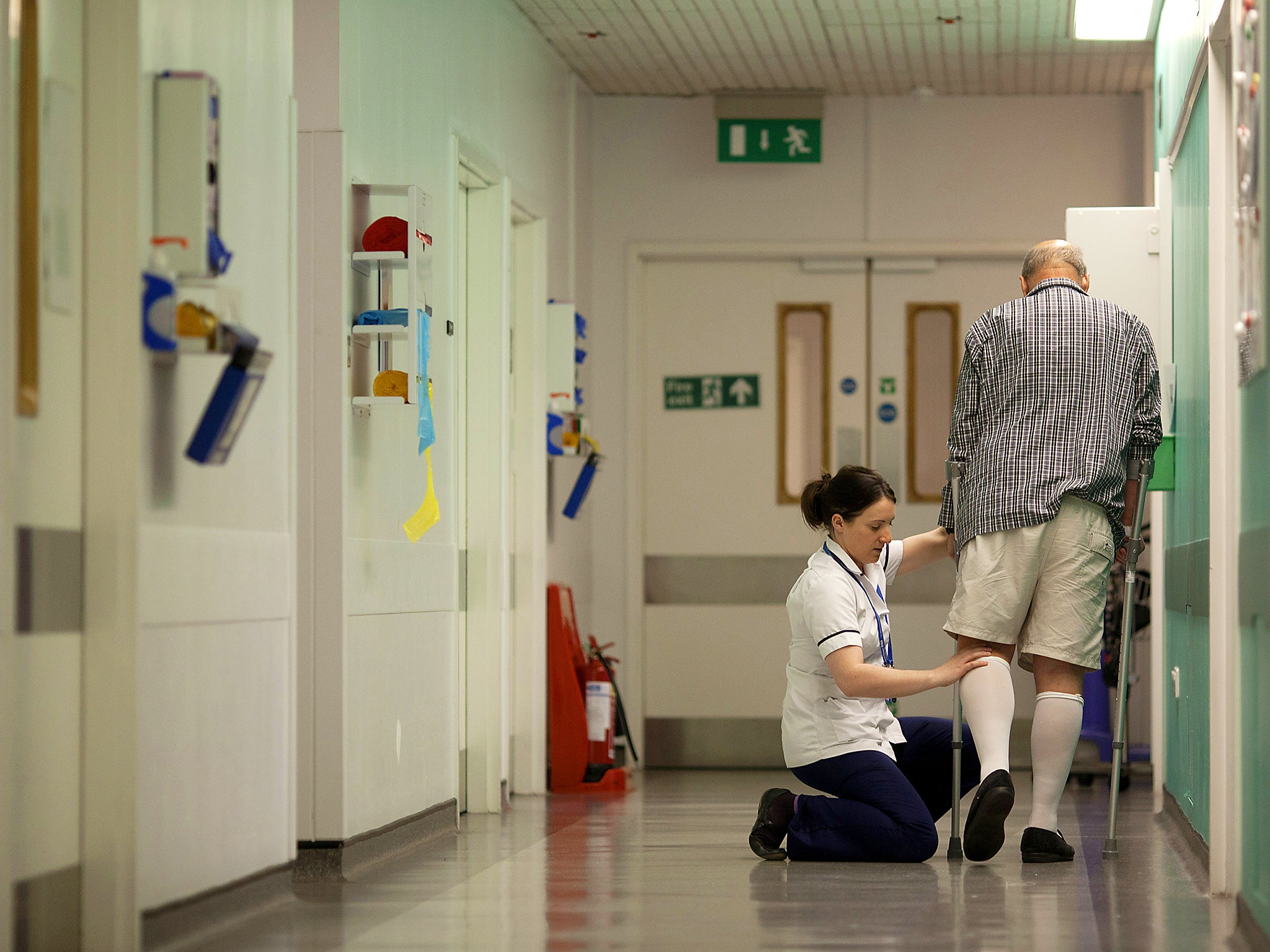Robots can't solve the crisis in the NHS – we still need workers with empathy
We are in full ‘jobocalypse’ mode, according to the billionaires of Silicon Valley


Images of trolleys laden with suffering people in corridors, old people hooked up to drips on beds in cupboards – not pictures emerging from Syria, but the latest crisis to hit the NHS.
Waiting times in A&E are unacceptable, with hospitals operating at full capacity; dozens of beds are occupied by people who have nowhere else to go. When even the Health Secretary – the normally unflappable Mr Positive, Jeremy Hunt – admits things are problematic, it’s probably not the best time to publish a report claiming that robots could take over nurses’ jobs.
According to experts at the independent think tank Reform, 250,000 public sector workers, including receptionists, civil servants and administrators, could be replaced by artificially intelligent “chatbots”. They claim that many tasks currently performed by doctors and nurses could be more efficiently executed by robots, from diagnosis to collating information, giving out medication and telling patients the best way to seek treatment, to selecting medical centres or specialist services. According to Reform, Whitehall could lose 130,000 jobs and the NHS 91,000 administrators, while hospitals and doctors would replace 24,000 receptionists.
Only one problem with this utopian dream: the latest news footage from the ghastly battleground that is emergency services shows parents sitting on the floor, cradling their children because there are no chairs. Toddlers run freely while combative drunks, the homeless and the mentally ill wander in and out. Corridors are blocked with wheelchairs, trolleys and equipment. Negotiating this complex sequence of obstructions needs the navigational skills of an Olympic Dressage champion – or an over-worked, unpaid, hard-pressed NHS doctor, nurse or care assistant.
Robots topple over, they don’t do stairs, they don’t have a great sense of balance and they have zero empathy. Can you honestly imagine a studious chatbot sitting at reception in a busy doctor’s surgery or behind the admissions desk in A&E? Where do the academics that come up with this bilge actually live? In cloud cuckoo land? No one is denying that automation will usher in job losses and lead to increased leisure. In the future, governments might have consider paying everyone a basic wage because there will not be enough of any kind of work, let alone full-time employment, to go around.
We are in full “jobocalypse” mode, according to the billionaires of Silicon Valley, who think that the future for dreary old flesh and blood humans looks pretty grim. And it’s not just low-paid workers who will be affected: according to experts at Oxford University, the middle classes face an equal threat from robots, and the Bank of England estimates redundancies could be as high as 15 million. Elon Musk, CEO of Tesla and Space X, forcefully states the case for artificial intelligence, claiming robots are the workforce of the future.
Hang on a minute, though. Humans are better at emotions, mobility and speaking. We are better at sifting through a complex situations involving other humans and acting appropriately. We are good at teamwork and responding to the unexpected. I cannot imagine for one minute that all drivers will suddenly be replaced by automated vehicles. It’s not going to happen. The most likely scenario is that driverless cars and taxis operate alongside ones driven by humans – who still want spontaneity and freedom of choice, even if it might cost them more. Skilled drivers will oversee fleets of robot trucks and schedule maintenance, and so on.
As for saving costs for the NHS and making it more efficient, I know from a brief period working as a care assistant for a documentary series, the amount of data you are required to input is ludicrous – as every patient will have experienced. There are forms, forms and more forms to fill in. The police force suffers from the same dead weight of data. Of course robots can get on with that. But humans are empathetic, even when working under pressure. Receptionists are frontline workers who need to be paid more, not phased out.
At the risk of sounding like a Luddite, I doubt very much that “chatbots” will be gliding about instead of civil servants taking notes in meetings in Whitehall, or doing anything more than performing mundane backroom clerical work. The reason is simple: I doubt any government would choose automation that results in redundancies and more workers claiming benefits. What’s needed is a forward-thinking strategy that includes retraining, better education for increased leisure, and a restructuring of the benefit system so that every citizens receives a basic salary which can be used towards paying for services. That way humans are in control of their lives, not just fodder for the scrap heap.


Join our commenting forum
Join thought-provoking conversations, follow other Independent readers and see their replies